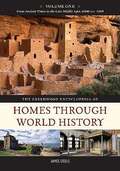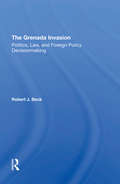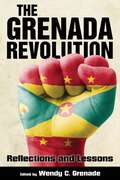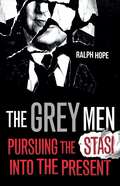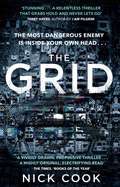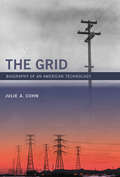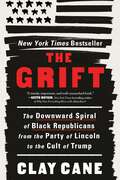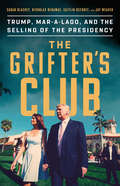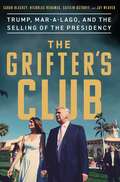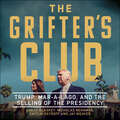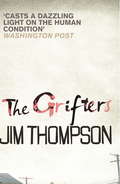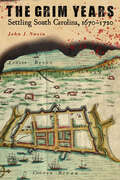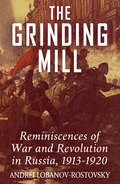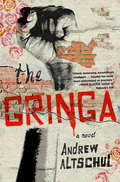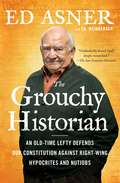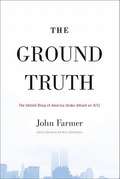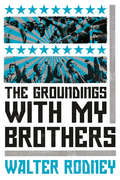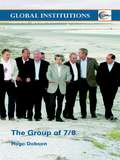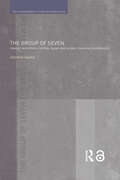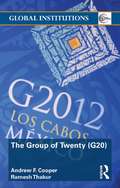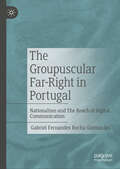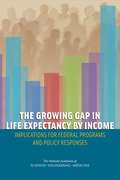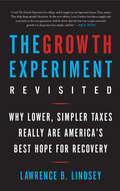- Table View
- List View
The Greenwood Encyclopedia of Homes Through World History, Volume 3: The Industrial Revolution to Today, 1751 to the Present
by James SteeleSteele (author and educator, U. of Southern California) provides a comprehensive survey of the housing of significant cultures from throughout the world: the Americas, Africa, Asia and Australasia, East and Southeast Asia, and Europe and the Western Mediterranean. The three-volume set spans the development of housing from ancient times to the present. While the author discusses materials used and methods of construction, he also delves into how the housing of different societies reflects their belief systems, social orders, and cultures. From the relatively familiar stone structures of Macchu Picchu to the Chinese residential districts known as hutongs, the array of architectural styles and the considerations incorporated into their construction--such as environment, light, protection, and available materials--provide a fascinating journey through history. Organized in an encyclopedic format, the set is clearly written, informative, and well-illustrated. Annotation ©2009 Book News, Inc., Portland, OR (booknews.com)
The Grenada Invasion: Politics, Law, And Foreign Policy Decisionmaking
by Robert J. BeckRobert Beck's study focuses principally on two related questions. First, how did the Reagan administration decide to launch the invasion of Grenada? And second, what role did international law play in that decision? The Grenada Invasion draws on extensive interviews and correspondence with key participants—and on the recently published memoirs of those who participated in or witnessed the administration's deliberations—in order to render a new and more complete picture of Operation "Urgent Fury" decisionmaking. Beck concludes that international law did not determine policy, but that it acted briefly as a restraint and then as a justification for action.
The Grenada Revolution: Reflections and Lessons (Caribbean Studies Series)
by Wendy C. GrenadeGrenada experienced much turmoil in the 1970s and 1980s, culminating in an armed Marxist revolution, a bloody military coup, and finally in 1983 Operation Urgent Fury, a United States-led invasion. Wendy C. Grenade combines various perspectives to tell a Caribbean story about this revolution, weaving together historical accounts of slain Prime Minister Maurice Bishop, the New Jewel Leftist Movement, and contemporary analysis. There is much controversy. Though the Organization of American States formally requested intervention from President Ronald Reagan, world media coverage was largely negative and skeptical, if not baffled, by the action, which resulted in a rapid defeat and the deposition of the Revolutionary Military Council.By examining the possibilities and contradictions of the Grenada Revolution, the contributors draw upon thirty years' of hindsight to illuminate a crucial period of the Cold War. Beyond geopolitics, the book interrogates but transcends the nuances and peculiarities of Grenada's political history to situate this revolution in its larger Caribbean and global context. In doing so, contributors seek to unsettle old debates while providing fresh understandings about a critical period in the Caribbean's postcolonial experience. This collection throws into sharp focus the centrality of the Grenada Revolution, offering a timely contribution to Caribbean scholarship and to wider understanding of politics in small developing, postcolonial societies.
The Grey Men: Pursuing the Stasi into the Present
by Ralph HopeWhat do you do with a hundred thousand idle spies? By 1990 the Berlin Wall had fallen and the East German state security service folded. For forty years, they had amassed more than a billion pages in manila files detailing the lives of their citizens. Almost a hundred thousand Stasi employees, many of them experienced officers with access to highly personal information, found themselves unemployed overnight. This is the story of what they did next. Former FBI agent Ralph Hope uses present-day sources and access to Stasi records to track and expose ex-officers working everywhere from the Russian energy sector to the police and even the government department tasked with prosecuting Stasi crimes. He examines why the key players have never been called to account and, in doing so, asks if we have really learned from the past at all. He highlights a man who continued to fight the Stasi for thirty years after the Wall fell, and reveals a truth that many today don&’t want spoken. The Grey Men comes as an urgent warning from the past at a time when governments the world over are building an unprecedented network of surveillance over their citizens. Ultimately, this is a book about the present.
The Grid: 'A stunning thriller’ Terry Hayes, author of I AM PILGRIM
by Nick Cook'A highly original, electrifying read' The Times'A stylish, riveting thriller' Daily Mail'An assured page-turner ... it combines action and foreign locations with big ideas a la Dan Brown' Sunday TimesThe US President Thompson has been dreaming of his own death. A repeating nightmare that hounds him night after night that he can't ignore: something tells him it's not just a dream, it feels too real.Thompson's doctor, military psychiatrist Josh Cain, is summoned to a church tower near the White House. He thinks he is there to talk down another suicidal ex-Marine. But the man he finds tells him of a plot to kill Thompson, revealing secrets he can't possibly have known - just seconds before a sniper's bullet takes him out . . .Battles have been fought man to man, then machine to machine, and even in cyberspace. But now there is a different battlefield emerging: human consciousness and the fight for our minds.What readers are saying:'A classy, intelligent and reflective investigative thriller.''A layered plot, engaging characters and a spine chilling ring of truth to the plot, which lured me in and kept me trapped until the final page.''A real page turner with plenty of surprises and twists. Great read.''THE BEST BOOK THAT I'VE READ ALL YEAR!'
The Grid: Biography of an American Technology
by Julie A CohnThe history of the grid, the world's largest interconnected power machine that is North America's electricity infrastructure. The North American power grid has been called the world's largest machine. The grid connects nearly every living soul on the continent; Americans rely utterly on the miracle of electrification. In this book, Julie Cohn tells the history of the grid, from early linkages in the 1890s through the grid's maturity as a networked infrastructure in the 1980s. She focuses on the strategies and technologies used to control power on the grid—in fact made up of four major networks of interconnected power systems—paying particular attention to the work of engineers and system operators who handled the everyday operations. To do so, she consulted sources that range from the pages of historical trade journals to corporate archives to the papers of her father, Nathan Cohn, who worked in the industry from 1927 to 1989—roughly the period of key power control innovations across North America. Cohn investigates major challenges and major breakthroughs but also the hidden aspects of our electricity infrastructure, both technical and human. She describes the origins of the grid and the growth of interconnection; emerging control issues, including difficulties in matching generation and demand on linked systems; collaboration and competition against the backdrop of economic depression and government infrastructure investment; the effects of World War II on electrification; postwar plans for a coast-to-coast grid; the northeast blackout of 1965 and the East-West closure of 1967; and renewed efforts at achieving stability and reliability after those two events.
The Grift: The Downward Spiral of Black Republicans from the Party of Lincoln to the Cult of Trump
by Clay CaneAN INSTANT NEW YORK TIMES AND USA TODAY BESTSELLERPart history and part cultural analysis, The Grift chronicles the nuanced history of Black Republicans. Clay Cane lays out how Black Republicanism has been mangled by opportunists who are apologists for racism.After the Civil War, the pillars of Black Republicanism were a balanced critique of both political parties, civil rights for all Americans, reinventing an economy based on exploitation, and, most importantly, building thriving Black communities. How did Black Republicanism devolve from revolutionaries like Frederick Douglass to the puppets in the Trump era?Whether it's radical conservatives like South Carolina Senator Tim Scott or Supreme Court Justice Clarence Thomas, they are consistently viral news and continuously upholding egregious laws at the expense of their Black brethren. Black faces in high places providing cover for explicit bigotry is one of the greatest threats to the liberation of Black and brown people. By studying these figures and their tactics, Cane exposes the grift and lays out a plan to emancipate our future.
The Grifter's Club: Trump, Mar-a-Lago, and the Selling of the Presidency
by Sarah Blaskey Caitlin Ostroff Nicholas Nehamas Jay WeaverAn astonishing look inside the gilded gates of Mar-a-Lago, the palatial resort where President Trump conducts government business with little regard for ethics, security, or even the law.Donald Trump's opulent Palm Beach club Mar-a-Lago has thrummed with scandal since the earliest days of his presidency. Long known for its famous and wealthy clientele, the resort's guest list soon started filling with political operatives and power-seekers. Meanwhile, as Trump re-branded Mar-a-Lago "the Winter White House" and began spending weekends there, state business spilled out into full view of the club's members, and vast sums of taxpayer money and political donations began flowing into its coffers, and into the pockets of the president. The Grifter's Club is a breakthrough account of the impropriety, intrigue, and absurdity that has been on display in the place where the president is at his most relaxed. In these pages, a team of prizewinning Miami Herald journalists reveal the activities and motivations of the strange array of charlatans and tycoons who populate its halls. Some peddle influence, some seek inside information, and some just want to soak up the feeling of unfettered access to the world's most powerful leaders. With the drama of an expose and the edgy humor of a Carl Hiaasen novel, The Grifter's Club takes you behind the velvet ropes of this exclusive club and into its bizarre world of extravagance and scandal.
The Grifter's Club: Trump, Mar-a-Lago, and the Selling of the Presidency
by Sarah Blaskey Caitlin Ostroff Nicholas Nehamas Jay Weaver'Many of the world's great leaders request to come to Mar-a-Lago in Palm Beach. They like it. I like it. We're comfortable.' - Donald TrumpA bit too comfortable, perhaps.Donald Trump's opulent Palm Beach club Mar-a-Lago has thrummed with scandal since the earliest days of his presidency. Long known for its famous and wealthy clientele, the resort's guest list soon started filling with political operatives and power-seekers. Meanwhile, as Trump re-branded Mar-a-Lago "the Winter White House" and began spending weekends there, state business spilled out into full view of the club's members, and vast sums of taxpayer money and political donations began flowing into its coffers, and into the pockets of the president.The Grifters' Club is a breakthrough account of the corruption, intrigue, and absurdity that has been on display in the place where the president is at his most relaxed. In these pages, a team of prizewinning Miami Herald journalists reveal the activities and motivations of the strange array of charlatans and tycoons who populate its halls. Some peddle influence, some look to steal government secrets, and some just want to soak up the feeling of unfettered access to the world's most powerful leaders.With the drama of an expose and the edgy humor of a Carl Hiaasen novel, The Grifters' Club takes you behind the velvet ropes of this exclusive club and into its bizarre world of extravagance and scandal._____An astonishing look inside the gilded gates of Mar-a-Lago, the palatial resort where President Trump conducts government business with little regard for ethics, security, or even the law.This ground-breaking and shocking expose reads like a thriller. Perfect for fans of Fire and Fury, Team of Vipers and Fear.
The Grifter's Club: Trump, Mar-a-Lago, and the Selling of the Presidency
by Sarah Blaskey Caitlin Ostroff Nicholas Nehamas Jay Weaver'Many of the world's great leaders request to come to Mar-a-Lago in Palm Beach. They like it. I like it. We're comfortable.' - Donald TrumpA bit too comfortable, perhaps.Donald Trump's opulent Palm Beach club Mar-a-Lago has thrummed with scandal since the earliest days of his presidency. Long known for its famous and wealthy clientele, the resort's guest list soon started filling with political operatives and power-seekers. Meanwhile, as Trump re-branded Mar-a-Lago "the Winter White House" and began spending weekends there, state business spilled out into full view of the club's members, and vast sums of taxpayer money and political donations began flowing into its coffers, and into the pockets of the president.The Grifters' Club is a breakthrough account of the corruption, intrigue, and absurdity that has been on display in the place where the president is at his most relaxed. In these pages, a team of prizewinning Miami Herald journalists reveal the activities and motivations of the strange array of charlatans and tycoons who populate its halls. Some peddle influence, some look to steal government secrets, and some just want to soak up the feeling of unfettered access to the world's most powerful leaders.With the drama of an expose and the edgy humor of a Carl Hiaasen novel, The Grifters' Club takes you behind the velvet ropes of this exclusive club and into its bizarre world of extravagance and scandal._____An astonishing look inside the gilded gates of Mar-a-Lago, the palatial resort where President Trump conducts government business with little regard for ethics, security, or even the law.This ground-breaking and shocking expose reads like a thriller. Perfect for fans of Fire and Fury, Team of Vipers and Fear.(P) 2020 Hachette Audio
The Grifters
by Jim ThompsonReissue of a true classic - 'One of the toughest crime novels ever' (Newsweek).'Jim Thompson is the best suspense writer going, bar none' NEW YORK TIMESRoy Dillon is young, good-looking and devastatingly charming. He's also a completely amoral con man. Lily, his mother, works for the mob. Moira Langtry, Roy's mistress, is always looking for the main chance, and so is Carol Roberg, the nurse brought in to look after Roy when a bad choice of mark means he has an unfortunate encounter with a baseball bat and a bad case of internal bleeding. The Grifters, one of the best novels ever written about the art of the con, is an ingeniously crafted story of deception and betrayal that was the basis for Stephen Frears' and Martin Scorsese's critically-acclaimed film of the same name.
The Grim Years: Settling South Carolina, 1670–1720
by John J. Navin“The compelling story of a colony besieged by meteorological, epidemiological, economic, and manmade catastrophes only to arise like the phoenix.” —Orville Vernon Burton, author of The Age of LincolnDuring South Carolina’s settlement, a cadre of men rose to political and economic prominence, while ordinary colonists, enslaved Africans, and indigenous groups became trapped in a web of violence and oppression. John J. Navin explains how eight English aristocrats, the Lords Proprietors, came to possess the vast Carolina grant and then enacted elaborate plans to recruit and control colonists as part of a grand moneymaking scheme. But those plans went awry, and the mainstays of the economy became hog and cattle ranching, lumber products, naval stores, deerskin exports, and the calamitous Indian slave trade. The settlers’ relentless pursuit of wealth set the colony on a path toward prosperity but also toward a fatal dependency on slave labor. Rice would produce immense fortunes in South Carolina, but not during the colony’s first fifty years. Religious and political turmoil instigated by settlers from Barbados eventually led to a total rejection of proprietary authority.Using a variety of primary sources, Navin describes challenges that colonists faced, setbacks they experienced, and the effects of policies and practices initiated by elites and proprietors. Storms, fires, epidemics, and armed conflicts destroyed property, lives, and dreams. Threatened by the Native Americans they exploited, by the Africans they enslaved, and by their French and Spanish rivals, South Carolinians lived in continual fear. For some it was the price they paid for financial success. But for most there were no riches, and the possibility of a sudden, violent death was overshadowed by the misery of their day-to-day existence.
The Grinding Mill: Reminiscences of War and Revolution in Russia 1913-1920
by Andrei Lobanov-RostovskyThe Grinding Mill, first published in 1935, is the exciting autobiographical account of the author’s experiences in the heady times of Europe and Russia from 1913 to 1920, encompassing both World War I and the early chaotic days of the Russian Revolution. Author and nobleman Lobanov-Rostovsky provides a detailed account of his life as a soldier during the war, and then his difficulties as a member of the military and nobility as the communists begin their sweep across Russia. He managed to escape, first to the forces of the White Russians, and later to the safety of France. Eventually, he completes his studies in Paris and made his way to America, where he would go on to have a long and distinguished career at the University of Michigan. Lobanov-Rostovsky died in 1979 at the age of 86.
The Gringa
by Andrew AltschulA gripping and subversive novel about the slippery nature of truth and the tragic consequences of American idealism … Leonora Gelb came to Peru to make a difference. A passionate and idealistic Stanford grad, she left a life of privilege to fight poverty and oppression, but her beliefs are tested when she falls in with violent revolutionaries. While death squads and informants roam the streets and suspicion festers among the comrades, Leonora plans a decisive act of protest—until her capture in a bloody government raid, and a sham trial that sends her to prison for life. Ten years later, Andres—a failed novelist turned expat—is asked to write a magazine profile of &“La Leo.&” As his personal life unravels, he struggles to understand Leonora, to reconstruct her involvement with the militants, and to chronicle Peru&’s tragic history. At every turn he&’s confronted by violence and suffering, and by the consequences of his American privilege. Is the real Leonora an activist or a terrorist? Cold-eyed conspirator or naïve puppet? And who is he to decide? In this powerful and timely new novel, Andrew Altschul maps the blurred boundaries between fact and fiction, author and text, resistance and extremism. Part coming-of-age story and part political thriller, The Gringa asks what one person can do in the face of the world&’s injustice.
The Grouchy Historian: An Old-Time Lefty Defends Our Constitution Against Right-Wing Hypocrites and Nutjobs
by Ed Asner Ed. WeinbergerIn the tradition of Al Franken and Michael Moore, Ed Asner—a.k.a. Lou Grant from The Mary Tyler Moore Show—reclaims the Constitution from the right-wingers who think that they and only they know how to interpret it.Ed Asner, a self-proclaimed dauntless Democrat from the old days, figured that if the right-wing wackos are wrong about voter fraud, Obama’s death panels, and climate change, they are probably just as wrong about what the Constitution says. There’s no way that two hundred-plus years later, the right-wing ideologues know how to interpret the Constitution. On their way home from Philadelphia the people who wrote it couldn’t agree on what it meant. What was the president’s job? Who knew? All they knew was that the president was going to be George Washington and as long as he was in charge, that was good enough. When Hamilton wanted to start a national bank, Madison told him that it was unconstitutional. Both men had been in the room when the Constitution was written. And now today there are politicians and judges who claim that they know the original meaning of the Constitution. Are you kidding? In The Grouchy Historian, Ed Asner leads the charge for liberals to reclaim the Constitution from the right-wingers who use it as their justification for doing whatever terrible thing they want to do, which is usually to comfort the comfortable and afflict the afflicted. It’s about time someone gave them hell and explained that progressives can read, too.
The Ground Truth
by John FarmerFrom the senior counsel to the 9/11 Commission, a mesmerizing real-time portrayal of September 11th, 2001, why we weren’t told the truth, and why our nation is still at risk As one of the primary authors of the 9/11 Commission Report, John Farmer is proud of his and his colleagues’ work. Yet he came away from the experience convinced that there was a further story of the September 11th attacks to be told, one he was uniquely qualified to write. Now that shocking story can be told. Tape recordings, transcripts, and contemporaneous records that had been classified have since been declassified, and the inspector general’s investigations of government conduct have been completed. Drawing on his knowledge of those sources, as well as his years as an attorney in public and private practice, Farmer reconstructs what happened on September 11th, 2001 and the disastrous circumstances that allowed it: the institutionalized disconnect between what those on the ground knew and what those in power did. He details-terrifyingly and illuminatingly-the key moments in the years, months, weeks, and days that preceded the attacks, then descends almost in real time through the attacks themselves, portraying them as they have never before been seen. Ultimately, Farmer builds the inescapably convincing case that the official version not only is almost entirely untrue but serves to create a false impression of order and American national security. The result is "a major, carefully documented and deeply disturbing book, one that deserves the most serious attention of every American concerned about our future" (Haynes Johnson, Pulitzer Prize winner and bestselling author). .
The Ground Truth
by John FarmerFrom the senior counsel to the 9/11 Commission, a mesmerizing real-time portrayal of that day, why we weren?t told the truth, and why our nation is still at risk. As one of the primary authors of the 9/11 Commission Report, John Farmer is proud of his and his colleagues? work. Yet he came away from the experience convinced that there was a further story to be told, one he was uniquely qualified to write. Now that story can be told. Tape recordings, transcripts, and contemporaneous records that had been classified have since been declassified, and the inspector general?s investigations of government conduct have been completed. Drawing on his knowledge of those sources, as well as his years as an attorney in public and private practice, Farmer reconstructs the truth of what happened on that fateful day and the disastrous circumstances that allowed it: the institutionalized disconnect between what those on the ground knew and what those in power did. He details ?terrifyingly and illuminatingly?the key moments in the years, months, weeks, and days that preceded the attacks, then descends almost in real time through the attacks themselves, portraying them as they have never before been seen. Ultimately, Farmer builds the inescapably convincing case that the official version not only is almost entirely untrue but serves to create a false impression of order and security. The ground truth that Farmer captures suggests a very different scenario?one that is doomed to be repeated unless the systemic failures he reveals are confronted and remedied.
The Groundings With My Brothers
by Walter Rodney"I have sat on a little oil drum, rusty and in the midst of garbage, and some black brothers and I have grounded together." - Walter RodneyIn his short life, the Guyanese intellectual Walter Rodney emerged as one of the leading thinkers and activists of the anticolonial revolution, leading movements in North America, South America, the African continent, and the Caribbean. In each locale, Rodney found himself a lightning rod for working class Black Power. His deportation catalyzed 20th century Jamaica's most significant rebellion, the 1968 Rodney riots, and his scholarship trained a generation how to think politics at an international scale. In 1980, shortly after founding of the Working People's Alliance in Guyana, the 38-year-old Rodney would be assassinated.In this classic work published in the heady days of international black power, Groundings with My Brothers details the global circulation of emancipatory ideas, but also offers first-hand reports of Rodney's mass movement organizing. Introduced and contextualized by leading Caribbean scholar-activists, this updated edition brings Rodney's legacy to a new generation of radicals.
The Group of 7/8 (Global Institutions)
by Hugo DobsonPart of Routledge’s leading Global Institutions Series, this book is a highly accessible, up-to-date introduction to the history, present and future of the G7/8 summits, exploring the role that the G8 plays and will play in global governance. Hugo Dobson examines the G8 and its position in global governance in terms of its relationship to the more formal and truly institutionalized mechanisms of global governance: the United Nations, World Bank and World Trade Organization. Divided into six informative chapters, this volume provides an innovative contribution to the dynamics of global governance and is especially relevant to promoting this area of investigation in the future. It includes: history and development of the summit; organization and functioning; perspectives of member states; achievements and failures; criticisms and challenges and future directions draws upon existing literature in order to provide the reader with a single more concise point-of entry acts as a guide to the broader field of research and provides suggested further reading. The Group of 7/8 is a core introductory guide and an essential purchase for students and professionals alike in the field of international relations.
The Group of Seven: Finance Ministries, Central Banks and Global Financial Governance (Routledge Studies in Globalisation)
by Andrew BakerWe are now in the era of the G8, although the G7 still exists as a grouping for Finance Ministers. Why do G7 finance ministries and central banks co-operate? What are the implications of this co-operation for US power and the abilities of the other six states to exercise leadership? What role do the G7 play in global financial governance? How much authority do they possess and how is that authority exercised? This is the first major monograph on the political economy of G7 finance ministry and central bank co-operation. It argues that to understand the contribution of the G7 to global financial governance it is necessary to locate the process in the context of a wider world financial order comprised of decentralized globalization. It also provides original case study material on the G7’s contribution to macroeconomic governance and to debates on the global financial architecture over the last decade. It assesses the G7’s role in producing a system of global financial governance based on market supremacy and technocratic transgovernmental consensus and articulates normative criticisms of the G7’s exclusivity. For researchers in the fields of IR/IPE generally, postgraduate students in the field of international organization and global governance, policy makers and financial journalists this is the most extensive analysis of the G7 and the political economy of global financial governance to date.
The Group of Seven: Finance Ministries, Central Banks and Global Financial Governance (Routledge Studies in Globalisation)
by Andrew BakerWe are now in the era of the G8, although the G7 still exists as a grouping for Finance Ministers. Why do G7 finance ministries and central banks co-operate? What are the implications of this co-operation for US power and the abilities of the other six states to exercise leadership? What role do the G7 play in global financial governance? How much authority do they possess and how is that authority exercised? This is the first major monograph on the political economy of G7 finance ministry and central bank co-operation. It argues that to understand the contribution of the G7 to global financial governance it is necessary to locate the process in the context of a wider world financial order comprised of decentralized globalization. It also provides original case study material on the G7’s contribution to macroeconomic governance and to debates on the global financial architecture over the last decade. It assesses the G7’s role in producing a system of global financial governance based on market supremacy and technocratic transgovernmental consensus and articulates normative criticisms of the G7’s exclusivity. For researchers in the fields of IR/IPE generally, postgraduate students in the field of international organization and global governance, policy makers and financial journalists this is the most extensive analysis of the G7 and the political economy of global financial governance to date.
The Group of Twenty (Global Institutions)
by Andrew F. Cooper Ramesh ThakurThis work offers a concise examination of the purpose, function and practice of the Group of Twenty (G20) summit. Providing a comprehensive historical account of the G20 Finance Ministers and Central Bank Governors process, the text then moves on to outline the conditions, events and debates that led to the formation of the permanent, expanded leaders’ level forum. The historical span of the G20 Summit process is not long, but the global transformations that precipitated it are crucial when seeking to understand it. Cooper & Thakur explore a variety of major debates, including: Governance by self-selected groups versus mandated multilateral organizations the legitimacy of informal leadership the issue of the G20’s composition of both ‘solution’ countries and ‘problem’ countries the role of the emerging powers new conceptions of North-South relationships This work offers a detailed examination of the ongoing shifts in economic power and the momentum toward global institutional reform, illustrating how the G20 has moved from a crisis committee to the premier global forum over this short but intense history, and mapping out its comparative advantages and key challenges ahead.
The Groupuscular Far-Right in Portugal: Nationalism and The Reach of Digital Communication
by Gabriel Fernandes GuimarãesThis book analyzes two types of nationalisms that are represented by the Portuguese groupuscular right, that is, the extra-party right. One faction is guided by ethnonationalism and nativism, looking at Portugal through an ethnically European prism. Small groups fight for a white Portugal linked to an imagined white world, rooted in ideas such as race and biology, following models from the US. The other faction looks for a future in a non-European confederation and wants Portuguese citizenship for non-European groups originating from the former colonies, while maintaining ties with the Portuguese extreme right, notably, the one that comes from the Salazar right-wing dictatorship (Estado Novo, 1926–1974). This faction suggests addressing questions of immigration by accepting immigration of non-European people from former imperial space and by initiating a confederation of countries, in which Portugal is the only state with a white majority. Guimarães analyzes the means of communication of these two factions, the language they use to articulate their viewpoints, and the worldviews of various groups in Portugal. He argues that the far right in Portugal is a space filled with radical styles of nationalism.
The Growing Gap in Life Expectancy by Income: Implications for Federal Programs and Policy Responses
by Committee on the Long-Run Macroeconomic Effects of the Aging U.S. Population<P> According to many studies, life expectancy has been rising fastest for people with higher education or income, so the gap in longevity by socioeconomic status has been increasing. This trend is important in itself, but it also means that higher-income people will increasingly collect government benefits such as Social Security over more years than will lower-income people. It also means that some proposed policy changes to make programs fiscally sustainable, such as raising the normal retirement age for Social Security or raising the eligibility age for Medicare, might disproportionately affect those with lower incomes. <P><P> These topics are discussed in this report. The study first reviews the literature on differences in longevity by education and by income and on trends in these differences; the committee then constructs some new estimates of our own. Next the report discusses the conceptual background for these issues and why they are important. We go on to evaluate the way that the widening income differences in mortality affect the value of net lifetime benefits for different income groups from Social Security retirement and spousal benefits, Disability Insurance, Survivors Insurance, Medicare, Medicaid, and Supplemental Security Income. Finally, we consider how the differential changes in mortality would affect analyses of some possible reforms to government programs for the elderly in the face of population aging. We consider the consequences of policies such as raising the earliest eligibility age and the normal retirement age under Social Security, raising the age of eligibility for Medicare, basing the cost-of-living adjustment on a different kind of consumer price index, and changing the formula for how benefits are calculated for higher-income beneficiaries.
The Growth Experiment Revisited: Why Lower, Simpler Taxes Really Are America's Best Hope for Recovery
by Lawrence B. LindseyThe first edition of The Growth Experiment, originally published in 1990 as a response to critics of the Reagan-era tax cuts, became a kind of bible for proponents of supply-side economics. This new and updated edition, which explores the economic effects of America’s tax policy over the last five presidential administrations, makes a bold and timely argument against the centerpiece of Obama’s economic policy--increasing taxes on the wealthy. Lawrence Lindsey provides a data-rich argument showing that because of changes in human behavior prompted by tax cuts, lowering taxes on the wealthy "costs” the treasury far less than most economists calculate and creates an economic boon to middle and lower income earners. Sure to be controversial, The Growth Experiment Revisited is essential reading for anyone looking to understand the arguments at the heart of this most fractious of American policy debates.
